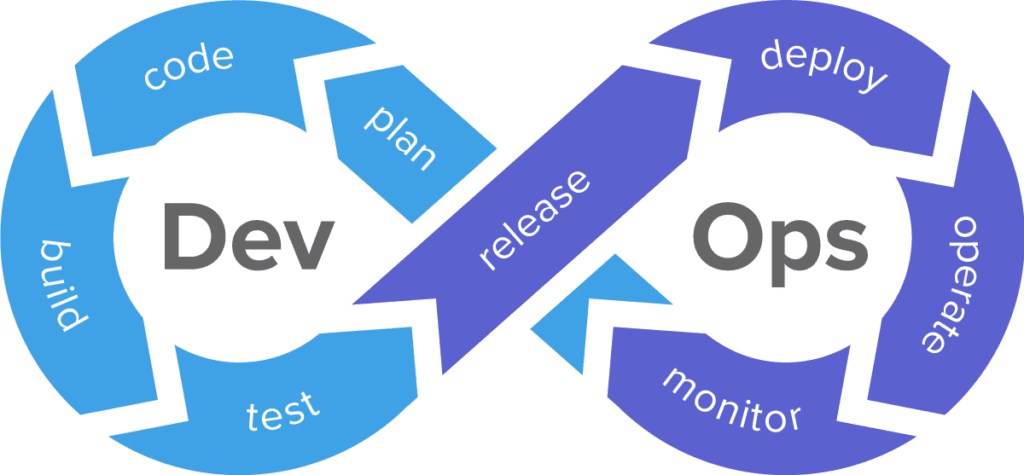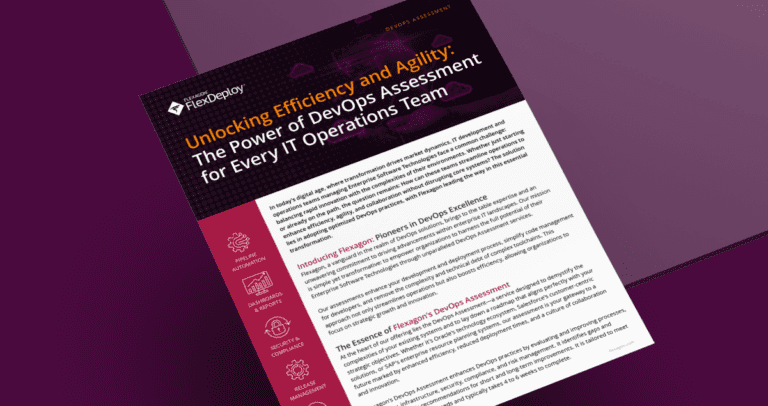Once an industry term becomes popular, particularly in technology, it can be difficult to get an accurate definition. Everyone assumes that the basics are common knowledge and moves on. However, if your company has been discussing DevOps, or if you are interested in learning more about it, here are some basics you should know.
What is DevOps?
DevOps refers to the restructuring of the traditional software application cycle to support agile development, and continuous improvement / continuous delivery. Traditionally, software was created in large-scale, monolithic bundles. New features and new releases were created in large packages and released in full-scale, infrequent, major deployments.
This structure is no longer effective in the modern business environment. Companies are under increasing pressure to be agile. They must respond rapidly to changes in the business environment to remain competitive. Software development needs to be completely changed as a process, so that incremental improvements can be made frequently – ideally, several times per day.
However, changing a development lifecycle completely requires major changes – in people and culture, process, and enabling tooling – to be effective. DevOps was created by the breaking down of cycles between development and operations, combining two separate functions in application development. The intent of these changes is to support agile, secure, continuous improvements and frequent releases.

What are the goals of DevOps?
Improve deployment frequency.
New applications and enhanced features are added to software regularly, in small increments, rather than holding a bundle of additional or improved functionality for an infrequent, large-scale release. This allows users to access improvements as soon as they are available, enriching the experience for end users.
Faster time to market.
For customer-facing applications, achieving a faster time to market improves customer satisfaction and leads to higher revenues, improved market share, and provides an overall competitive advantage.
Lower failure rate.
DevOps involves standardizing and automating significant portions of the application development cycle. This includes testing and quality assurance, which occur in environments that mimic production environments as closely as possible. The combination of standardization and testing in near-production environments means that errors and issues are identified and addressed prior to release. Moreover, the fact that deployments occur with incremental changes means that testing is more precise and efficient, rather than trying to monitor and gauge the effect of hundreds of changes that are joined for a single release.
As a leader in DevOps solutions, we offer a DevOps Assessment tailored to revolutionize your IT operations, ensuring you’re always a step ahead.

What are the benefits of DevOps?
Streamlined processes.
Streamlining, standardizing, and automating processes is a benefit because it reduces errors and allows resources to be channeled toward higher-level, strategic objectives. Not only are applications improved as a result, but employees tend to be happier and more engaged, as they spend less time struggling with lower-level manual tasks and emergencies.
Collaborative work environment.
One of the foundational aspects of DevOps is in the name – breaking down departmental silos, such as those between the development and operations functions. When teams are successfully combined, they begin to cross-skill and share information, collaborating for a common goal.
Increased agility.
DevOps steers resources away from building an enormous, monolithic, bundled application for release. Instead the DevOps focus on frequent, incremental deployments makes the process, the team, and the organization more agile in response to changes in the business environment, providing a competitive advantage.
Is DevOps right for me?
There are many considerations to adopting a DevOps structure at an enterprise. To be successful, DevOps requires a clear strategy, buy-in from key stakeholders, active change management, and the right tools in place to support a transformation.
DevOps technologies can provide a number of benefits to the company that implements it successfully. However, a company contemplating making the change has a lot to consider; and finding the skills and experience to create a successful DevOps strategy may be hard to find in the existing workforce. This is why many companies select a DevOps partner; one with a proven record of success in DevOps implementation, strategy; one that can provide the tools needed to support DevOps adoption.
Flexagon is one of the few DevOps specialist companies that offers support throughout all stages of the DevOps cycle – from strategy planning to full maturity. Their proprietary platform, FlexDeploy, is the only integrated platform that supports continuous integration, continuous delivery, and release orchestration to accelerate and simplify your DevOps journey.
Learn about the 6 Benefits of Automation and how they can impact your business, in our Whitepaper:




